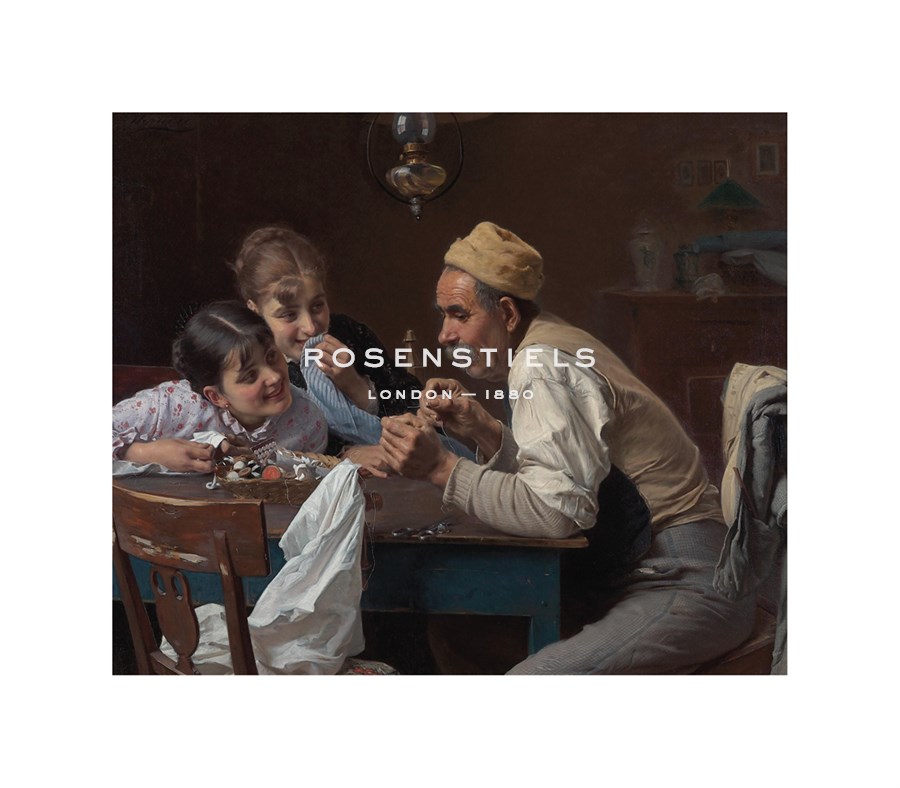
William Hogarth Hand Numbered Limited Edition Print on Paper :"Beer Street"
Title: Beer Street
Dimensions (W x H ): Paper Size: 18 x 24 in | Image Size: 18 x 24 in
Edition | Medium: Each print is hand numbered, accompanied by a certificate signed by the Master Printer and is numbered to match the print. The editions are limited to 1880 copies. |
This Gouttelette print on paper is published with light-fast inks to BS1006 Standard onto acid-free calcium carbonate buffered stock, mould-made from 100% cotton and sourced from environmentally conscious paper suppliers. This product is exclusive to Rosenstiels.
About the Art: Superior Edition
About the Artist:
Born in England on November 10, 1697, William Hogarth began at a private drawing school, where he joined other students drawing from casts and live models. His first dated painting is The Beggar's Opera (1728), which emphasizes Hogarth's prevailing interests: His involvement with the theatre and with down-to-earth, comic subjects. Though never neglected, Hogarth is chiefly remembered for his satiric engraving more than his painting. He died on October 26, 1764.
William Hogarth was born in Smithfield, London; the fifth child in his family. His father, Richard Hogarth, made an ill-advised move into the business world with a Latin-speaking coffeehouse, the failure of which bankrupted the family and sent the elder Hogarth to debtor's prison. Left virtually on his own, William Hogarth found an apprenticeship in a silver workshop, where he became a master of engraving and opened his own plate-engraving shop seven years after he started (1720).
Through his shop, Hogarth became acquainted with Sir James Thornhill, whose art academy soon hosted Hogarth regularly and would be the setting for the only formal instruction Hogarth would ever receive. (Hogarth also married Thornhill's daughter, Jane, in 1729.) While at Thornhill's academy, Hogarth created a series of illustrations of Samuel Butler's Hudibras and thereafter continued making engravings of scenes from theatrical shows, often with a satirical flair.
Hogarth soon began establishing his reputation with works such as The South Sea Scheme (1721) and The Lottery (1721). A decade later, he had become hugely successful on the back of works such as A Harlot's Progress(1732) and the morality series A Rake's Progress (1734).
With Hogarth's growing success came a growing interest in using his art to make social and political statements, often targeting the urbanization of London and the ensuing prevalent crime. Works created in this atmosphere include Industry and Idleness (1747), Gin Lane (1751) and The Four Stages of Cruelty (1751), which respectively addressed embracing the Protestant work ethic, alcoholism and cruelty to animals.
By 1762, Hogarth had turned to anti-war satire, notably with The Times, which raised the ire of national politicians (and prompted back-and-forth rebuttals). Unfortunately, The Times would be the beginning of the end of Hogarth's creative period, as the following summer, he had a seizure and became seriously ill. Hogarth died in London on October 26, 1764, at the age of 67.
















